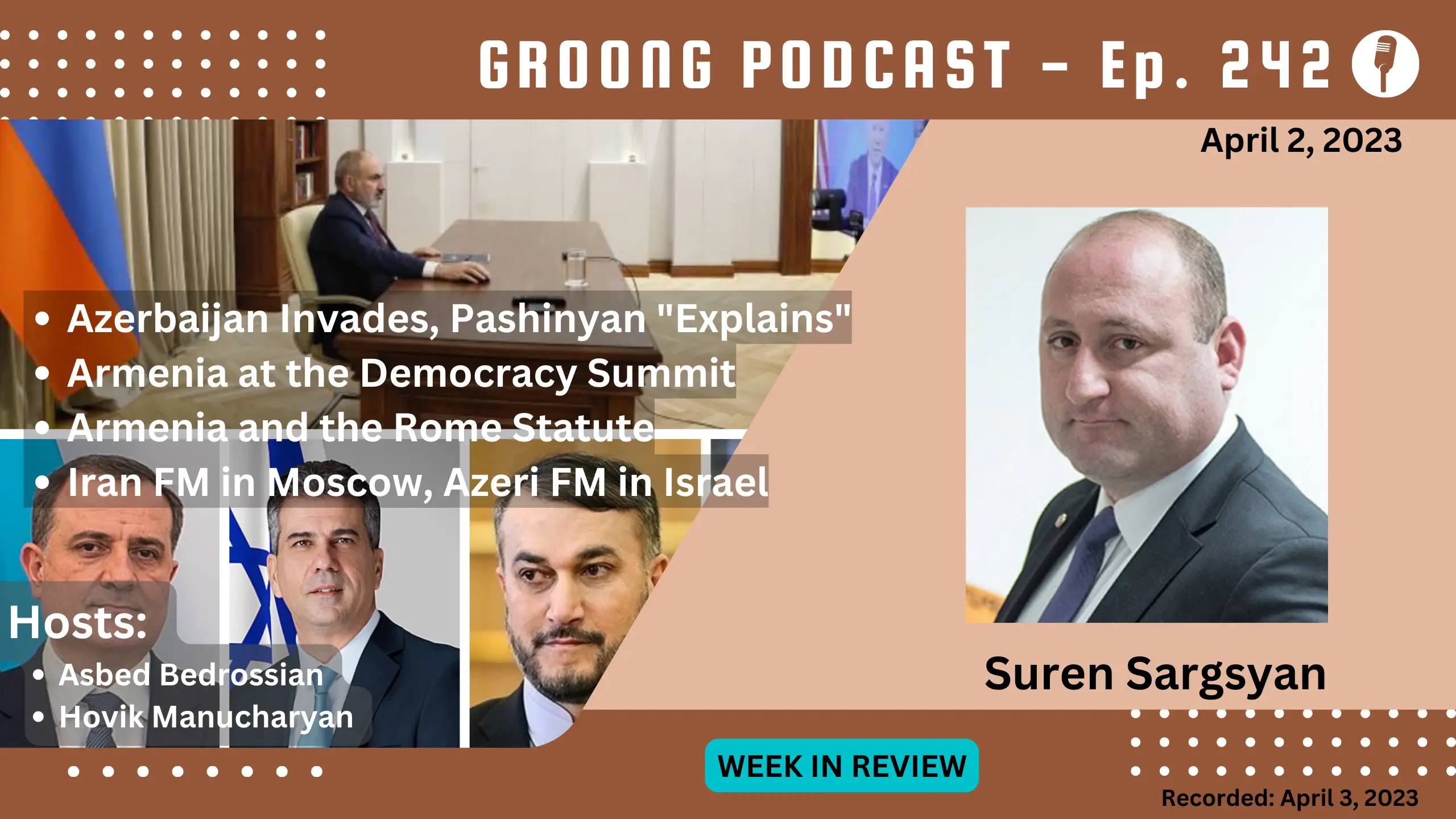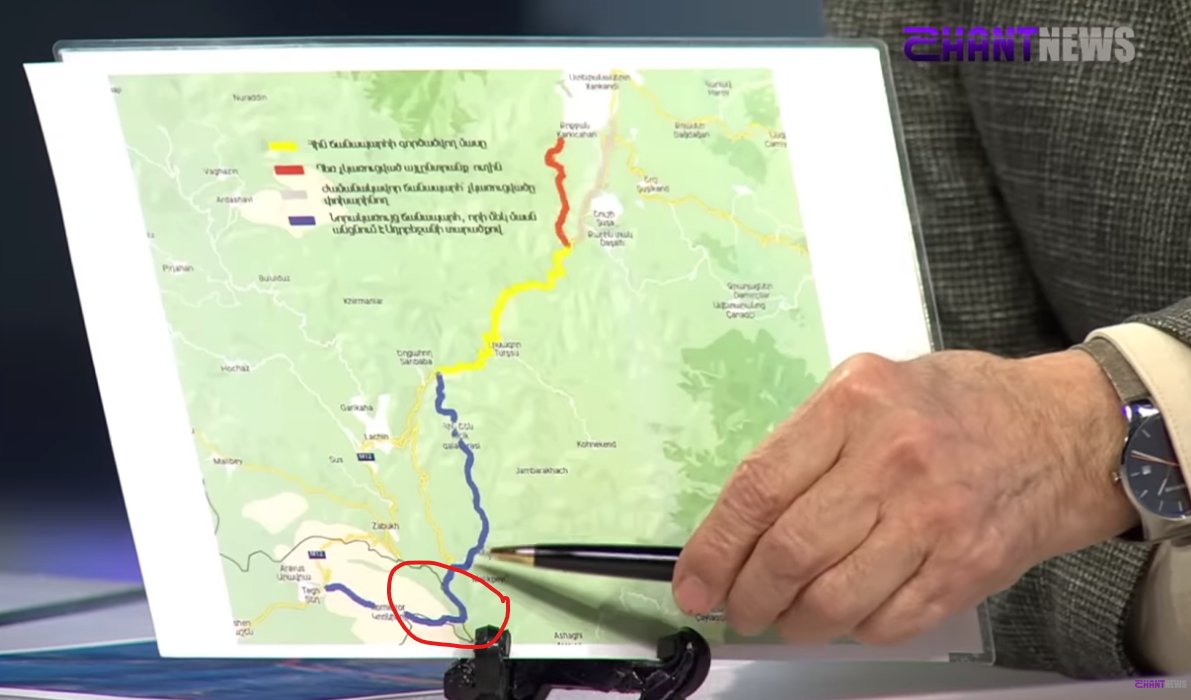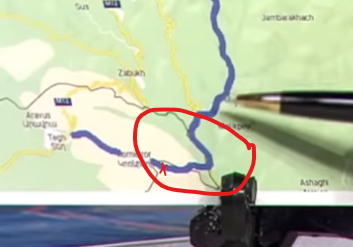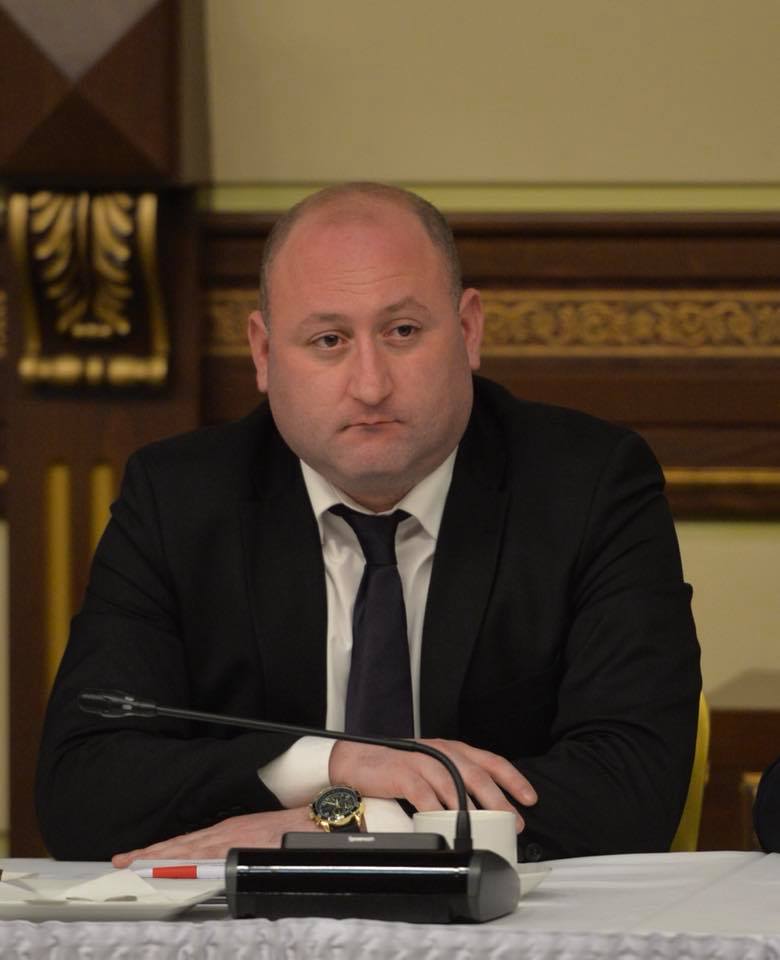
Guest:
Topic:
- Azerbaijan Invades, Pashinyan “Explains”
- Armenia at the Democracy Summit
- Armenia and the Rome Statute
- Iran FM in Moscow, Azeri FM in Israel
Episode 242 | Recorded: April 3, 2023
Show Notes
Azerbaijan Invades, Pashinyan “Explains”
In the past two weeks Azerbaijan has made a number of moves on the line of contact with Artsakh and Armenia and occupied additional Armenian territories.
In Artsakh, on March 25, one move aimed at controlling a dirt road that they allege was being used to supply Artsakh with weapons from Armenia - this is a lie of course. Russia blamed Azerbaijan for breaking the Ceasefire Agreement of November 2020, while the US “expressed concern” about this aggression as well. Still so far as we know, the Azerbaijani forces now have the dirt road under fire control. Azerbaijani social media circulated video evidence of what they allege is control of two heights in the Shushi region directly overlooking the road.
In Armenia, on March 30 (or before), another move aimed at controlling certain heights around Tegh, on the alternative road to the Lachin/Berdzor corridor which Armenia’s government is barely now completing, 8 months after they handed Berdzor to Azerbaijan. It’s a little hard to understand this incident, but it‘s related to the early handing over of Berdzor to Azerbaijan, and probably concession by Pashinyan behind the backs of the Armenian people. According to the Armenian National Security Service, Aliyev jumped the gun on an April 1 deadline to complete the alternative road and assume new positions, and instead advanced reportedly 200+ meters into Armenian border territory, and is digging bunkers in 5 new positions on the heights overlooking Aravus, Tegh, and Kornidzor, depriving the use of nearby fields by local farmers, who can no longer farm.
The strategic heights in Armenia, which Azerbaijan occupied without firing a single shot, have allowed the Azerbaijani troops to come extremely close to the road that the Armenian government is now building to replace the previous one and control nearby territory. Cartographer Rouben Galichian meanwhile says that the newly constructed road has been built in such a way as to cross into and out of Azerbaijan. This could give Azerbaijan the pretense to disrupt the communications even on the new road.


Hrant Bagratian, former prime minister of Armenia, believes that Aliyev intends to establish a checkpoint first Azerbaijani segment, thereby bypassing the zone of responsibility of Russian peacekeepers.
Questions:
- What’s the current state of affairs on the line of contact between Armenians and Azerbaijan? Both Armenian and Artsakh front lines? What do you make of these incidents, and the Armenian response to them?
- Are these strategic or tactical developments?
- Regarding Artsakh, are the Russian peacekeepers doing their job?
Last week the head of the EU mission to Armenia (EUMA) said that if Armenia doesn’t get attacked this spring, then the mission will have done its job. Azerbaijan slammed this statement.
Questions:
- Have we heard from the EU monitors on this latest act of invasion?
- Is the EUMA providing value?
Earlier we said that news about the Azerbaijani movements in Armenia was hard to understand, simply because the information being supplied to Armenians by their government is apparently full of half-truths and manipulation. Initially, the Armenian NSS said that there has been no change in Armenian positions without admitting that at the same time Azerbaijan has moved forward significantly to occupy strategic heights. There are now reports that Azerbaijanis are shooting at Armenian positions, demanding that they be moved back.
Question:
- How is the Armenian government’s communication in regards to these events?
Armenia at the Democracy Summit
While the borders of Armenia are experiencing all sorts of instability, and soldiers are dying on the line of contact almost every week, Pashinyan was busy attending the US president Joe Biden’s Democracy Summit 2023. Turkey and Azerbaijan were not invited to this summit; neither was Russia; The Kremlin’s Peskov dismissed the summit as something that “can hardly be regarded as a serious event”.
Question:
- Suren, we know that you watch this event carefully. What struck you as important this year?
Armenia declined to fully endorse the summit declaration and join other states at the summit in condemning the Russian invasion of Ukraine.
Questions:
- Was this a plus for Armenian diplomacy?
- Is Armenia reaping any benefits from this summit? What was achieved with Pashinyan’s presence at the event?
Armenia and the Rome Statute
Two weeks ago Armenia’s constitutional court approved the legality of the parliament ratifying the Rome Statute - which is the treaty that established the International Criminal Court (ICC). Ratifying this statute means that the country legally commits to uphold the decisions issued by the ICC. And as we know two weeks ago the ICC issued an arrest warrant for Russian president Vladimir Putin.
Obviously this puts Armenia, in fact all countries that have tried to steer clear of the global crisis between Russia and The West, or even pretended to stay neutral in their statements regarding the war in Ukraine, to pick sides.
The Armenian constitutional court started considering this issue back in December of 2022, when the Putin arrest mandate had not been issued. The court’s approval drew a sharp response from Russia to Armenia.
Questions:
- What do you think of the timing of this approval by the court? After all these months, why would they issue an approval for the parliament to consider ratifying the Rome Statute at such a delicate moment? Do you see advantages, and disadvantages of the approval?
- Given the current global whirlwind shaping the new world order, is the Rome Statute at all beneficial for Armenia?
Over the past few days, Russia began hinting that Armenian dairy products do not meet Russian safety regulations, and then started banning these products. And just over the weekend, Armenia stated that it would not arrest Putin if he visited Armenia.
Question:
- We assume all these various events are related. What do you think, and how do you think this is going to play out?
Iran FM in Moscow, Azeri FM in Israel
This past week Iran foreign minister Hussein Amir-Abdollahian was in Moscow, meeting with Russian FM Sergey Lavrov. The stated goal of the two countries is to sign a long-term strategic deal. Reportedly they discussed a wide range of topics, from the JCPOA, the Iran nuclear deal that is constantly roadblocked for some reason of another, to Syria, to the conflict in Armenia and Artsakh, as well as elevated defense cooperation and more. Incidentally, this meeting comes on the heel of an Iran-Saudi Arabia rapprochement brokered by China.
Questions:
- Can we put this visit in the context of a new world order, or multipolarity that is shaping up as the war in Ukraine evolves?
- How do the discussions affect Armenia?
- Common interest friends.
- What is the role of India in the new world order?
- Is the Iran-Saudi Arabia thawing is a net positive for Armenia?
While Abdollahian was in Moscow, Azeri foreign minister Jeyhun Bayramov was in Israel, inaugurating their new embassy. Among other statements, he thanked Israel for its support against Armenia in the 44-day war and since, while Israeli FM Eli Cohen said the two countries should form a “united front” against Iran. Azerbaijan has not responded to Iranian calls to explain this “agreement”.
We’ve known that Israel’s anti-Armenian stance in the Caucasus has two primary goals: money and Iran. So Azerbaijan is taking advantage of these goals and Israel’s international prominence and clout to solve its problems with force and with impunity; because it is flush with cash, oil and western loans and attention.
Questions:
- Does this meeting in Tel Aviv break new ground in the Azeri-Israeli relationship?
- Beyond opening the embassy, what was achieved by Bayramov’s visit?
- The relationship is clearly anti-Iranian and Iran is deeply wary of it. Is Azerbaijan making the Caucasus more dangerous for all countries in the region with its foreign politics in this area?
Alright, let’s wrap up our topics here. I’d like to ask each of you if there’s been something on your mind this past week that you want to talk about.
Topics from the Panelists
- Hovik - Garen Megerditchian assaulted by Alen Simonyan. b. Suren Sargsyan’s new book “Մի կյանքից ավելի”.
- Suren - “Մի կյանքից ավելի” - meaning “More than A Lifetime” is Suren’s new book about his father, Armen Sargsyan’s work during the years of independence, and the operation to bring Monte Melkonian to Armenia. It is available on Newmag.am.
Wrap-up
We hope you found our Week in Review helpful. We invite your feedback and your suggestions, you can find us on most social media and podcast platforms. Thanks to Laura Osborn for the music on our podcasts.
Guests

Suren Sargsyan
Suren Sargsyan is the founder and President at the Armenian Center for American Studies, a research center based in Yerevan.
Hosts

Hovik Manucharyan
Hovik Manucharyan is an information security engineer who moved from Seattle to Armenia in 2022. He co-founded the ANN/Groong podcast in 2020 and has been a contributor to Groong News since the late 1990s.
Disclaimer: The views expressed by Hovik Manucharyan on the ANN/Groong podcast are his own and do not necessarily reflect the opinions of his employer or any other organization.

Asbed Bedrossian
Asbed Bedrossian is an IT professional, and for years oversaw the central IT enterprise infrastructure and services at USC. His decades of experience spanned across IT strategy, enterprise architecture, infrastructure, cybersecurity, enterprise applications, data center operations, high performance computing, ITSM, ITPM, and more.
Asbed founded the Armenian News Network Groong circa 1989/1990, and co-founded the ANN/Groong podcast in 2020.